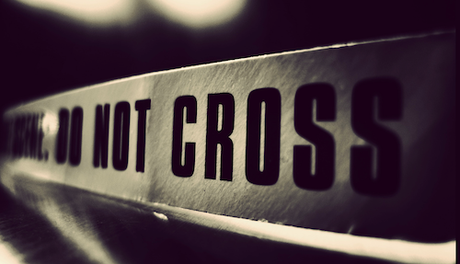
This is the third and final post in this series. You can read part one here, and part two here. Before we begin, I want to clearly state that I am not LEGAL COUNSEL. Laws changes, and circumstances vary, so with this general information, I strongly suggest you obtain legal counsel when dealing with criminal matters in student ministry.
Sadly, if you serve in student ministry for long, and at any depth, you’re most certainly going to have a teenager approach you at some point with an accusation of abuse. In some cases this is verbal abuse, in others physical, and in others sexual. The accusations will range from parents, to close family, to extended family, to teachers and others. In my 21 years of experience, I’ve dealt with dozens of these situations. Unfortunately, usually the accusations are true, but not always. I have dealt with numbers of occasions where the accusations were false and proven to be so over time.
It is vital that you have a zero tolerance policy for criminal or abusive situations. It is vital that you understand your responsibility to protect victims and help them find legal and spiritual help. It is vital that you fully cooperate with all legal authorities. And it is also vital that you handle the accusations appropriately so that authorities can determine their truthfulness and full extent. Here are some thoughts:
In Relation to Abusive Situations and Mandatory Reporting:
- Involve only the people that are a part of the problem or the solution.
- Inform that Pastor and other key ministry leaders whenever an abusive situation is being handled.
- Do not approach or inform the accused. This is for legal authorities to handle.
- Obtain legal counsel and do exactly as you are told in handling abuse.
- Always report sexual abuse or criminal abuse immediately to legal authorities.
- Keep careful documentation of sensitive or sexual matters, counseling sessions, and how you reported abuse.
- Keep records of who you spoke with when you reported abuse.
- Be familiar with your insurance company’s reporting guidelines and submit necessary reports.
- Have phone number for Child Protective Services and Local Law Enforcement accessible.
- If law enforcement is unresponsive, call your contact and ask about response.
- Be available to spiritual support, pray with, and encourage the victim and family involved. (Not the abuser)
- Stay out of the legal investigation and don’t communicate with any one in a way that could hinder it.
- Understand who are considered mandatory reporters: pastors, teachers, adult authorities, etc.
- Always cooperate fully with the legal authorities and never try to protect a potential criminal.
- Never wait to report physical or sexual abuse or other criminal activity.
- Never wait for someone else to report criminal activity. If you know, you are required to report.
- Never allow a person who has been accused of previous abuse to work with young people.
- Never allow a person to be a child worker without a background check.
These situations are among the most difficult in all of ministry. Helping an abused victim is a heart-wrenching process. Reporting an abuser is never enjoyable. Watching a family torn apart by dreadful crimes committed in secrecy is a horrible thing. And yet, we are called to love, serve, and help to the best of our abilities, even in these terrible types of circumstances. Doing the right thing is always ultimately blessed by God, and you will see some victories over time.
It’s a joy to serve families! But it’s impossible to do so for very long without running into some sensitive and dangerous situations. You must employ these and similar boundaries to insure that you can continue ministering for the long term with integrity and protection. You may not be able to help everybody, but these boundaries will enable you to help a lot more people for a lot longer.
